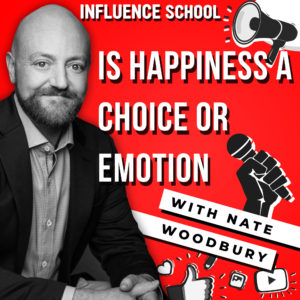
Download Now!
Have you ever decided whether happiness is a choice or an emotion? Dr. Paul Jenkins is a positive psychologist and he’s here today with Nate Woodbury to answer what happiness is and why it is both a choice and an emotion. Tune in!
We’ve got a big dilemma today, Paul. -Okay. -Trying to decide is happiness a choice or is it an emotion? I mean, I brought in positivity psychologist, Paul Jenkins because you’ve got to figure this out. It’s got to be a yes or no question, right? -It is. -Is positivity and emotion or a choice? -Yes. -Wait. -You said it was a yes or no question. -Well. But I’m confused. -Do I have to pick one of those? Because Nate, it’s both. It’s an emotion. We describe happiness as a feeling. -Okay. -Okay. An emotion. You’ve also heard that happiness is a choice. -Yeah. -Which can annoy people sometimes. In fact, sometimes when I present that issue, people feel offended. -Why do you think that is? -Because they’re not happy. -Okay. -“Why would I ever choose this? I would never choose this.” And so they don’t see it as a choice. It’s just something that happens to them. -Or the absence. If they’re feeling an absence of happiness, they might think, “Well, I choose happiness. How come I’m not happier? I haven’t…” -“I’m just not getting it?” -Yeah. -Yeah. And it’s because there are processes that are going on in our mind. As a psychologist, my job is to illuminate the obvious. Which is cool because I get paid to tell people things they already know. How awesome is that? But there’s obvious things that are unnoticed. Obvious but unnoticed. Like the feeling of your shirt. Can you feel it? -I can now. -Is it obvious? -Mmm-hmm. -Yeah. But totally unnoticed until I called it to your tension. -Correct. -Fair enough? Or the fact that we’re speaking English, did you notice? I wasn’t… – Obvious but unnoticed. And the process is in our mind are in that realm. We’re inside of our own skin. We don’t see what’s operating the machine. And it’s obvious as soon as it’s called to your attention. But unnoticed until that point. So, the process… And that’s what I get to do in my practice. It illuminate the obvious. These processes that are going on in our mind. For example… -Okay. -Evaluation, alright? That’s a… That’s a process that our mind does for us. Evaluation means judging. And notice first Nate that you can’t turn this off. You’re constantly judging aren’t you? – Hmm. -You judge yourself, judge your spouse, your kids. You judge me. It’s alright, I judge you too. -And relating this to the feeling happy… -Yeah. -…I had a circumstance happen. Something happens and you’re saying that I’m evaluating… -Then you judge it. -I’m judging. -Yes. -Whether that was a good experience or bad experience? -Exactly. So, let’s say you’re just driving down the street out here. -Hmm. -And you get rear-ended. Okay? You know, Munches the back into your car. You’re suddenly judging this experience, aren’t you? It’s like, “Oh, this this sucks. This is bad.” Well, it is what it is. You’ve heard that phrase before. And that can be annoying too. But all it means is the way things are. It’s what you’ve got. -It could have been worse? -What if you knew for sure that had you not been rear-ended at that intersection, had you continued to drive along, you would have been hit by a train and killed instantly. -I felt… I feel pretty happy about there… -You’d be like, “Oh, this is the best thing that could have happened.” Right? It’s the same event. It’s the same event. What changed? Your judgment of it. And we don’t always have all of the data all of the information. We don’t know what would have happened. So, all we can do is take what we’ve got. What it is and we judge it. Now, notice this. Judgment implies comparison. Evaluation implies comparison with some standard. If you don’t have a standard, you’re going to make one up. And you’ve got a really great imagination. So, notice this. You can always imagine something better than what you’ve got. And you can always imagine something worse. Is this true? -Yeah. -So, you get a pick one of those directions to make your judgement, your evaluation. If you compare what you’ve got to something better, how do you feel about what you got? It’s bad. -Okay. So, we’ve got… We’ve got this emotion. -Yeah. -In specific, we’re talking there about happiness. -Happiness. -Whatever happens to us, we can… -It is what it is. -By this process of evaluation, kind of judging the situation, depending on how we do that will then dictate how we feel? -Yeah. And you’re never wrong about how you feel. It’s not wrong to feel badly about getting rear-ended. It’s not wrong to feel grateful about getting rear-ended. Pick one of those. -Hmm. -And you don’t always have all of the data. So, you have to just pick a position. This is why happiness is a choice. -Okay, so if we’re saying that happiness is an emotion and it’s a choice… -Yes. -…are all emotions a choice? -Yes. -Ah, there’s some hesitation. -Well, because they happen so automatically. We don’t see it as a choice. We don’t see all of the intervening pieces. In fact, we’ve got a word, a term for this in psychology. -Okay. -We call it the fundamental attributional error. Alright? -Mouthful. -Yeah we made all that up because we feel smart when we make stuff up. But all it means is that when we experience a feeling… And notice how automatically feelings come. -Yeah. -Something happens, you feel something. As soon as we feel that feeling, our mind kicks in to analytical mode. “Why do I feel this?” And like with the being rear-ended, okay? You, immediately feel. Why do I feel “Arrrh”? Well, obviously because I got rear-ended. The part that we leave out is a little intermediate step. We get rear-ended, boom! Our mind evaluates it. -Mmm. -Comes up with a conclusion that this is a bad thing. And then we feel the feeling. -But you also mentioned that it’s kind of an immediate thing. Emotions happens happened so quick. -Absolutely. -So, is there a way that we can… Maybe we get rear-ended, we feel angry and then we like, “Wait a minute.” And we can go back and reverse and go back and, “I’m going to change my thinking here.” -There’s some brain hacks. In fact, here’s a really good one. -Awesome. -When you get triggered, practice saying, “This is good.” -Okay. That makes sense. -It sounds crazy. -So, something happens, I get rear-ended… -You get rear-ended. -Good. -Well this is good. Now, do you notice the fight? -Uh-huh. -That happens mentally? Because immediately you’ve got fight on your hands. That more accurately in your mind. -Well, I noticed the tone that I said. It was different. I said, “This is good.” But you said, “This is good!” -This is good! And the question pops up. “What? How could this be good?” And it’s not even a question? It’s a statement disguised as a question? Hear the exclamation point? It’s not a question. Watch your punctuation. Put a question mark back on there. How could this be good? Alright, do you see what happened in your mind? It shifts gears in to, “Wait a minute.” Now we’re at a metacognitive level. We’re thinking you’re thinking about our thinking and we start to look for possibilities that we didn’t see when we were just doing the autopilot reaction. So, you push the pause button. Insert a new response. Okay? A chosen response. “This is good!” Even if you have no idea how it could possibly be good. Because that changes the direction of your mind. And you will start to see how happiness is a choice. -Okay. So, we’ve been filming videos up for YouTube for over a year now. -Yeah. -And I’ve heard this principle a lot. -Right. -And what… One block in my mind is, “Okay. This is a longtime practice. It’s going to take me a long time to perfect this.” Perhaps. -Okay. -But the other thing that I’m just recognizing now is… I mean, there’s in a 10 minute episode, there’s some practical advice here. It’s just question. “How could this be good?” -And make sure it’s a question, not a statement disguised as a question. – So, if I can just get into the habit of asking that question, that’s going to help me choose happiness? -That will give you the practice that’s necessary to build that skill. And maybe that… -Happiness as a skill? -That’s the acknowledgement. Happiness is a choice, yes. And it’s a skill set. -That’s actually comforting. That’s comforting for me because… -Yeah. -It’s not like I’ve got a master my brain in order to be happy. I mean, I can… I can practice. It’s something that will take time. -Yeah. -Okay. -Well, you mentioned the practice. I call what I do a practice. I show up and Live On Purpose and I’m filming videos, I’m doing podcasts, I’m seeing clients, I’m speaking, I’m writing books. I do full-time practice of the principles that we’re talking about here. I’m a black belt at positivity. -Mmm-hmm. -I’m mixing metaphors here but you get to what I’m talking about. I have put in the 10,000 hours. I’ve got all of the prerequisites out of the way. And the more you practice, the better you get at it. So, yeah. I’m glad you said that. That’s… It’s a choice, it’s also a skillset. It’s going to take (you said) sometime. It’s actually going to take some practice. And practice requires time. -Yeah. -And effort. But it’s not just time if you’re just waiting, you know, for your happiness to come. Have fun. It’s going to take some specific skill practice to get there. -Awesome. Well, I… I’m glad we had this conversation. I learned a lot. -Oh, good. -So, hopefully enjoyed this episode as well. I’m curious to know what your thoughts are. What are your takeaways from this or what’s your reaction about this? Do you agree? Do you see the power in this? Go ahead and comment below. We’ll see you in the next episode.
